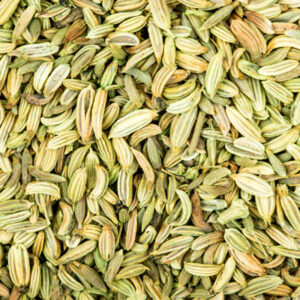With passing age, your senses lose their power. Your ability to sense the smell, and aroma declines naturally. As it happens slowly, you may not notice any difference. Other than age, it can also be due to cough, and cold, and any existing medical condition where a person experiences a temporary loss of smell, and taste. This article equips you with the necessary information of how can you manage this disorder through natural remedies.
Reasons behind the loss of smell and taste
The sense of taste and smell are correlated. This implies that loss of taste can be due to the loss in smell of a person. One of the main reasons behind it is age. As the person gets old, his/her sensory abilities start to weaken. It reduces ability to identify taste/smell.
Another reason is existing medical conditions. Disorders such as anosmia, hyposmia, phantosmia, and parosmia, can result in impairment in the ability to recognize smell. On the other hand, disorders such as ageusia, dysgeusia, hypogeusia, hypergeusia, and parageusia takes away the ability to recognize taste.
Other conditions that can lead to loss of taste, and smell are:
- sinus,
- head trauma,
- smoking
- zinc deficiency
- dental issues such as oral contamination, and placement of dentures, and
- Bell’s palsy.
How to diagnose loss of smell, and taste?
If you feel any reduction in your sensory abilities, you need to reach out to an ENT specialist. He may ask you to taste and smell different substances of different concentrations to figure out your ability to smell and taste. He may also perform a ‘sip, spittle, and rinse’ test and perform a physical evaluation of your nose, throat, and ears to arrive at the correct conclusion.
Home remedies to regain lost sense of taste and smell
1. Garlic
Boil two to three chopped garlic cloves in a cup of water for a few minutes. Strain it and drink this infused water two times a day. Garlic compounds have anti-inflammatory, and antimicrobial activities. It can treat a blocked nose, relieve cold like symptoms and help you breathe easily. In a few days of this procedure, you can restore your sensory power of taste, and smell.
2. Castor Oil
Warm a teaspoon of castor oil and put it into one nostril. After a minute, repeat the process with another nostril. Do it once every day. The ricinoleic acid present in castor oil has potent anti-inflammatory properties that alleviate signs related to inflammation, and swelling caused due to a cold.
3. Ginger
Drink two cups of ginger tea daily. The warming action of ginger will effectively treat cold. It’s strong aroma, and flavor not just improves your smell, but also stimulates taste by activation of your taste buds.
4. Peppermint
Peppermint has menthol in it that is the primary ingredient responsible for restoration of your loss of smell, and taste. It possesses exceptional antimicrobial, and anti-inflammatory properties that works by reducing the severity of cold that could be responsible for your loss of taste, and smell.
To use this remedy, you will need ten to fifteen peppermint leaves, and add it to a cup of water. Boil it in a container for ten minutes. Allow it to cool. Strain the mixture. Add a teaspoon of honey to it. Drink it two times a day to see improvement in your abilities of smell and taste.
5. Cayenne Pepper
Cayenne pepper has capsaicin in it that is effective at clearing blockage in nasal passage. Add one teaspoon of cayenne pepper in one teaspoon of honey. Now add this paste in one glass of water. Drink this concoction once daily to restore your lost sensory ability of smell, and taste.
6. Apple Cider Vinegar
Apple cider vinegar possess remarkable anti-inflammatory, and antimicrobial properties. It helps in fighting off the bacteria that has the ability to cause infections as well as clear nasal blockage.
To improve your ability to smell, and taste, you need to prepare a concoction of one teaspoon of apple cider vinegar and one glass of luke-warm water. Drink it once daily. To make it flavorful, you can add a little honey to it. Honey will soothe and heal your inflamed tissues in the nasal passage.
7. Cinnamon
Cinnamon possesses exemplary antimicrobial properties that treats nasal congestion, and infection, thereby enhancing the sense of taste, and smell. To use the benefits of cinnamon, make a paste of half teaspoon of cinnamon powder, and a teaspoon of honey. Eat it two times a day to get relief.
Conclusion
If senses of taste, and smell have got impaired, then it requires you to diagnose the problem and figure out underlying reason that is causing it. With the right identification, you can take the better remedial measures that will help you regain your sensory abilities in less time.

















